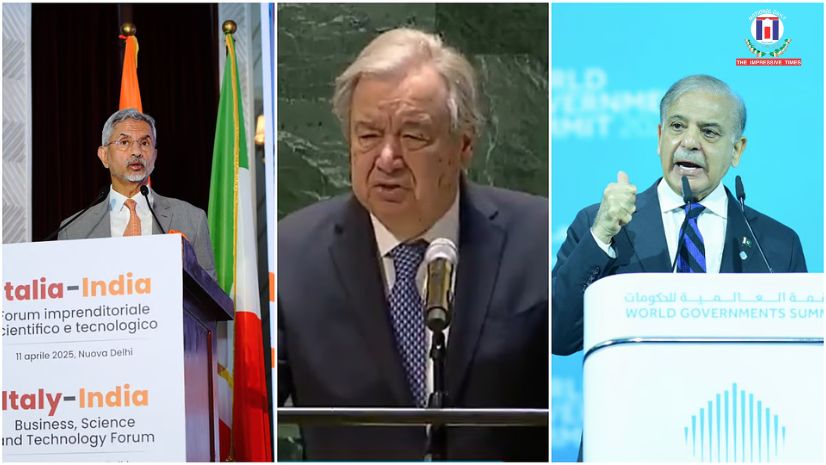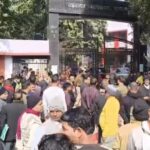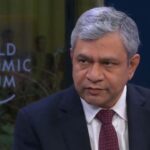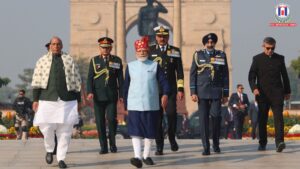
GENEVA, 30 APRIL 2025 : UN Secretary-General Antonio Guterres has strongly condemned the terrorist attack in Pahalgam, Jammu and Kashmir, which occurred on April 22, killing 25 Indian nationals and one Nepalese citizen. Guterres made separate calls to India’s External Affairs Minister S. Jaishankar and Pakistan’s Prime Minister Shehbaz Sharif, emphasizing the importance of bringing justice to the victims through lawful means. The United Nations statement highlighted Guterres’ concerns over rising tensions between India and Pakistan, urging both nations to avoid any escalation that could result in further tragic consequences. He offered the UN’s support for de-escalation efforts, showcasing the international community’s call for peace and stability in the region. The Pahalgam attack, carried out by Pakistan-sponsored terrorists, targeted a group of tourists, causing significant casualties and injuries. The attack, which took place during the busy tourist season, resulted in the deaths of 26 individuals, with many others injured. India has pointed to Pakistan’s involvement in harboring and supporting terrorism, making it clear that it holds the neighboring country responsible for the tragic attack. This has further strained the already delicate India-Pakistan relations, escalating calls for retaliatory measures. In response to the attack, Prime Minister Narendra Modi convened an emergency meeting, attended by Defence Minister Rajnath Singh, Chief of Defence Staff General Anil Chauhan, and the three armed services chiefs. National Security Advisor Ajit Doval was also present at the meeting. The government sources revealed that during the meeting, the Prime Minister reaffirmed India’s commitment to crushing terrorism and conveyed full confidence in the Indian Armed Forces’ professional capabilities. Modi emphasized that the Indian Armed Forces should have complete operational freedom to respond in a manner that would decisively address the threat of cross-border terrorism. India’s response to the attack was swift and robust. The Cabinet Committee on Security (CCS) convened on April 23, just a day after the attack, to discuss the implications and strategize the national response. In a strong stance, India decided to hold the Indus Waters Treaty of 1960 in abeyance until Pakistan unequivocally halts its support for cross-border terrorism. The government also ordered the closure of the integrated Attari Check Post, further isolating Pakistan in the wake of the attack. As part of India’s diplomatic measures, the government declared officials from the Pakistani High Commission as Persona Non Grata, instructing them to leave India within a week. This diplomatic action aims to send a strong signal to Pakistan about India’s stance on the terrorism threat and its inability to tolerate any further cross-border attacks. Additionally, India also canceled any visas granted under the SAARC Visa Exemption Scheme (SVES), further distancing itself from Pakistan and signaling its displeasure with the continued support for terrorism. India has made it clear that it will not tolerate the loss of innocent lives at the hands of terrorist organizations backed by Pakistan. The government has vowed to take all necessary steps to ensure the safety and security of its citizens, while holding Pakistan accountable for its role in fostering terrorism. The attacks have ignited anger across the country, leading to calls for stricter action against the forces behind the violence. India’s response in the coming weeks will be closely watched as the government considers both diplomatic and military options to address the growing threat posed by Pakistan-based terrorist groups. The international community, including the United Nations, remains focused on the need for de-escalation, while urging both India and Pakistan to find peaceful solutions to the complex issues at hand.



















No Comments: